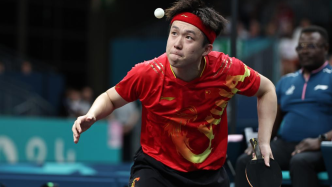
On July 31, Beijing time, in the men's singles table tennis competition of the Paris Olympic Games, China's "top seed" Wang Chuqin lost to Swedish player Moregard 2 to 4. He was upset and missed the top 16, which aroused heated public discussion.
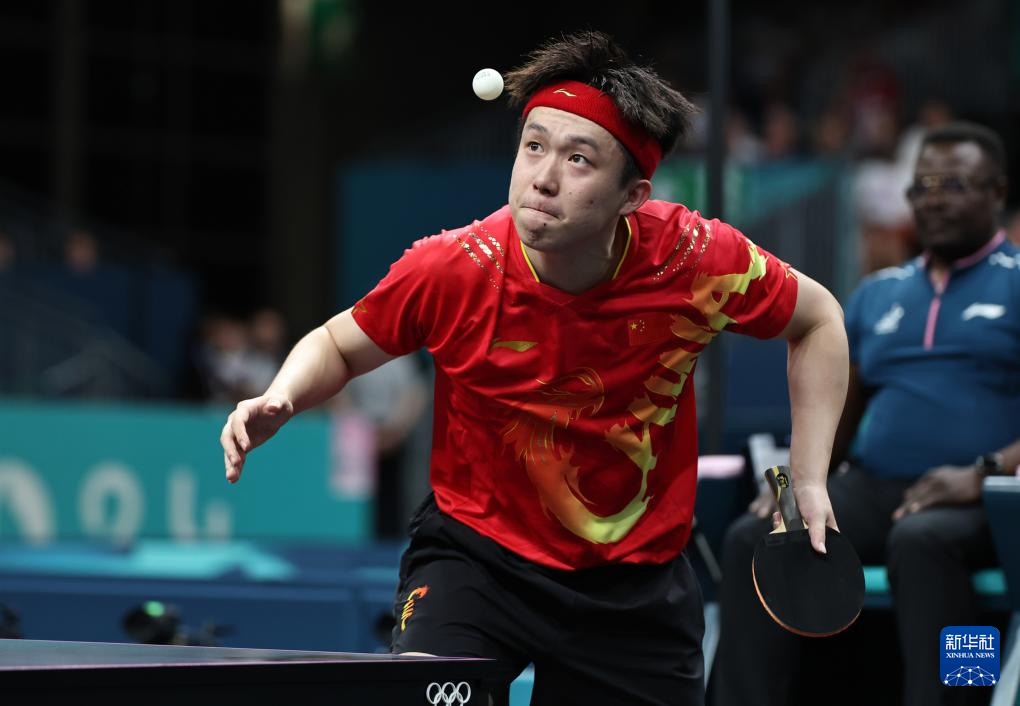
On July 31, Wang Chuqin served during the game. Photo by Xinhua News Agency reporter Wang Dongzhen
Previously, Wang Chuqin's racket was trampled in full view of the crowd during the live broadcast of the mixed doubles gold medal. This unexpected exit caused related discussions on various social media.

Image source: Weibo screenshot
Although Wang Chuqin himself responded that "changing rackets is not a reason to lose", from the perspective of a psychologist, even if the secondary racket and the main racket are physically the same, the psychological impact of changing rackets should not be ignored.
How do psychological factors affect athletes' competition?
American social psychologist Zajonc believes that in social situations, the "presence" of others may arouse an individual's awareness of being evaluated by others.
In other words, when many spectators are watching the game, athletes will realize that others are censoring them and unconsciously pay attention to their own behavior and performance. This is manifested in two different effects: one is "social inhibition" and the other is "social inhibition". It is "social promotion".
1. “Distraction” is an important cause of social inhibition effect
Distraction, that is, the dispersion of attention, has relatively little impact on sprints and long-distance races, which rely more on the physical fitness of the players rather than attention resources. For example, the famous sprinter Usain Bolt can still Turn to look at others.
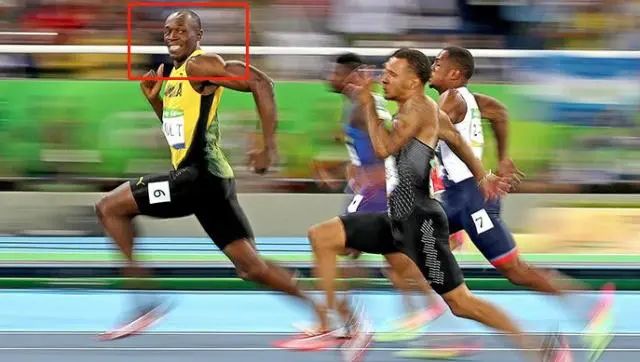
Bolt turned back to look at the moon in the Olympic men's 100-meter final, creating the famous scene of "turning back to look at the moon". Source: Internet
But table tennis is different. It has higher requirements on fine movements and tactical games, and requires fast and accurate judgment and decision-making. In table tennis competitions, caring about "spectating" will have a greater negative impact. Because distraction may lead to insufficient cognitive resources, thereby reducing the quality of decision-making, such as whether to pull the ball or slice the ball when facing an incoming ball, whether to swing short or hit the backcourt, deformation of technical movements may be inevitable.
To give an example that is easier for everyone to relate to, when we take an exam, if the invigilator stands behind us and looks at us, we will feel that our thinking has been disturbed, which will greatly affect our answers. Some people can't even write a word, and the teacher Misunderstood as "guilty thief" and wanting to cheat. This is actually a typical case of "social suppression".
Although Olympic-level athletes have long been accustomed to the attention of the audience, this is probably the first time that athletes have encountered the whole world watching their rackets being trampled on. This is something they are not mentally prepared for. In a sense, the more you think about "I can't be influenced by the racket" and "I can't let my opponent feel that I am influenced by the racket", the more susceptible I am to the psychological implications of these negative thoughts.
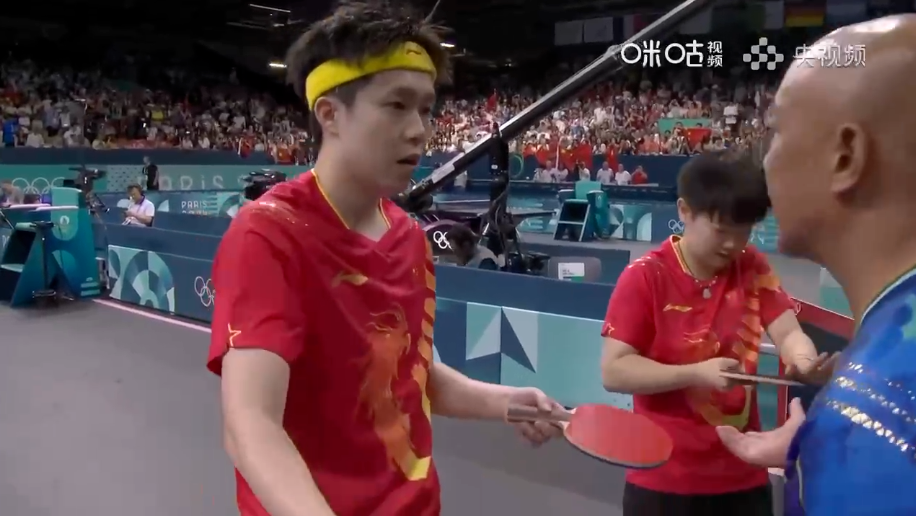
Source: CCTV
When discussing this incident, some people will cite the case of Zhang Yining and think that it is completely possible to win the game without being forced to temporarily change the racket. However, in terms of "being noticed", the two incidents are completely different: in the previous case, neither Zhang Yining's opponents nor the audience knew about the "racquet change". Zhang Yining himself said, "I can't let my opponents see that I am very dissatisfied with this racket."
Therefore, in terms of mentality and momentum, Zhang Yining was not "overwhelmed". But Wang Chuqin’s racket was trampled on during the live broadcast to the world. This cannot be disguised even if you want to, and it is difficult to ensure that the mentality will not be affected by it.
2. "Concern about winning" and "worry about losing" are also more likely to lead to the "social inhibition" effect
In 2019, several sports scientists from Ukraine conducted interviews with high-level athletes and found that the primary factors affecting athlete performance include motivation and willpower.
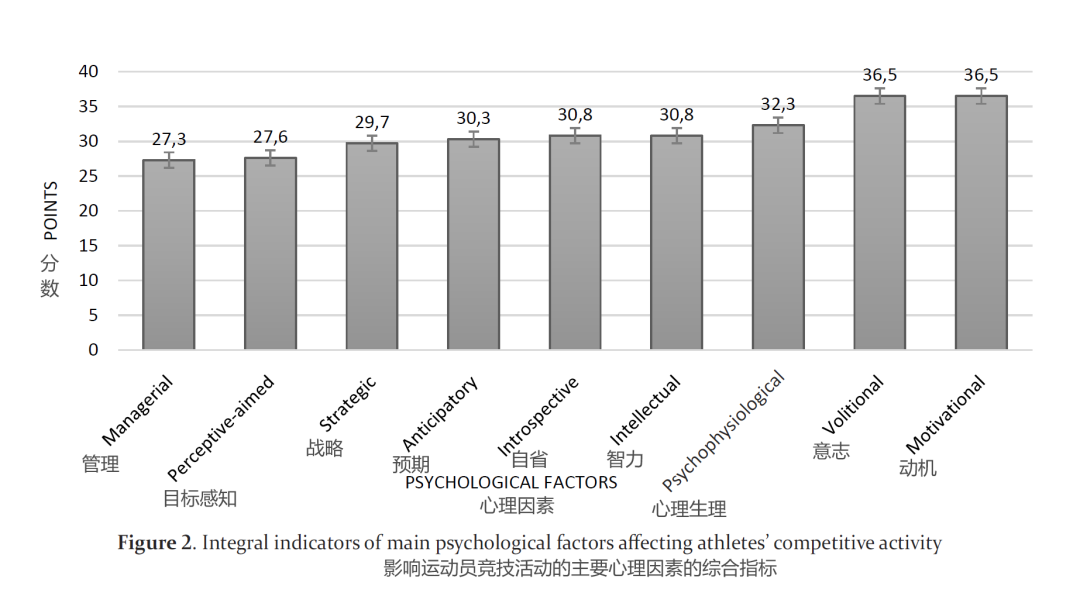
Source: Reference [1]
Motivation is easy to understand, whether you have a strong desire to win. Willpower represents whether an individual can break through himself, overcome difficulties, control emotions, etc.
Athletes must have a desire to win, this is necessary, otherwise there would be no point in competing. But if you have an overly strong mentality of "wanting to win but afraid of losing", it actually takes up a lot of cognitive resources and psychological energy.
American psychologists Robert M. Yerkes and John Dillingham Dodson proposed the Yerkes-Dodson Curve in 1908. This curve points out that under moderate levels of stress or excitement, human performance will be optimal, and as the level of stress or excitement increases, performance will first increase, and then gradually decline after reaching the optimal point.
In other words, it is impossible to perform well without any pressure at all, that is, to have a winning motivation, but if the level of motivation is too strong, it can hinder behavior and performance.
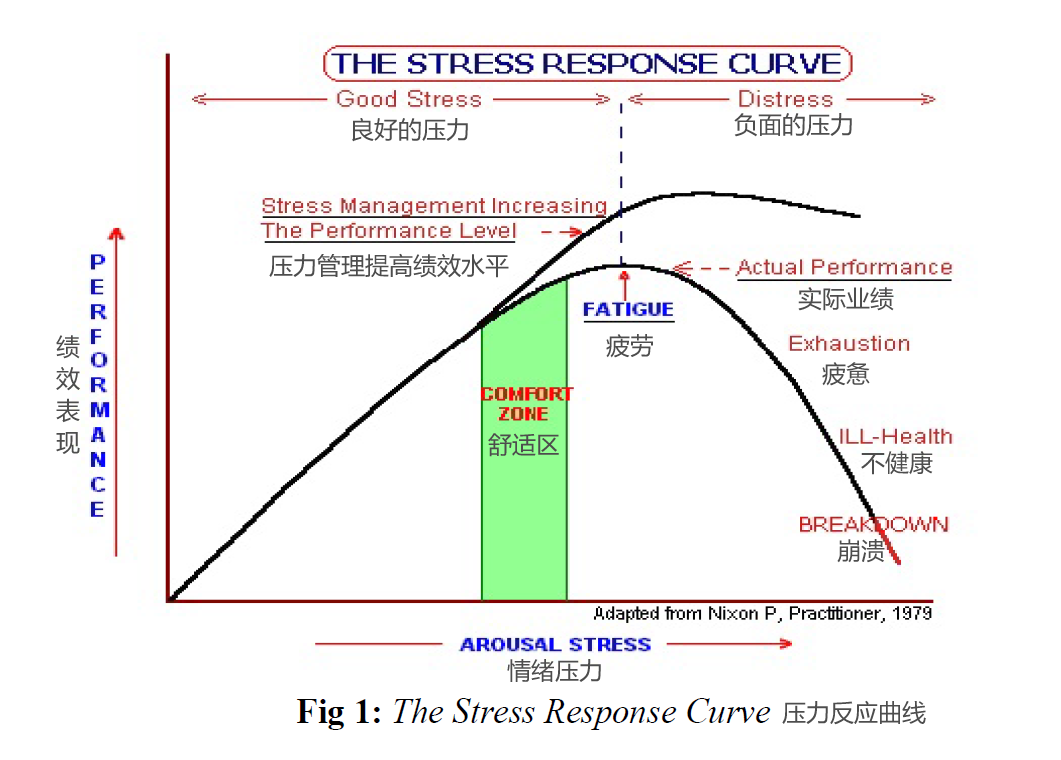
Source: Reference [2]
The most typical case in the field of sports is the "Jensen effect" due to excessive motivation levels leading to abnormal performance. Athlete Dan Jansen performs very well in daily training, but frequently fails in important games - due to poor performance due to high pressure and high expectations.
We must have experienced it in our lives. In the face of major events, because we want to perform well and repeatedly remind ourselves "don't be disturbed by external factors", our minds go blank, our thoughts are confused, and our hands are shaking. In fact, this is a physiological change caused by emotions - stress causes the HPA axis to be overly activated, blood flows to the limbs, muscle tension in the limbs increases, and brain ischemia occurs.
This is why members of the national shooting team now do mindfulness training to regulate their emotions before and during the game. Because it requires high fine movements, emotions and mentality cannot affect the state of the hands, such as hand shaking.
Speaking of this, have you thought of the phenomenon that many table tennis players blow on the table tennis ball, touch the table in the corner, and spin the racket before serving?
Many netizens joked that "this is blowing fairy air" and "closing a magic barrier". In fact, from a psychological point of view, this is also a kind of mindfulness training, pulling thoughts away from the eyes of "bystanders" and returning to the present moment. Get into the flow state of playing golf.

Source: Internet
In the competition between high-level athletes, psychological factors are the key to victory.
Many times we always linearly link competition results with strength (competitive level, ability, etc.), but in competitions we have seen too many "dark horses" emerge, and some of the top horses in the world have missed their stride - Psychology , called "choking phenomenon".
Among them, the most impressive one is the American star Emmons who missed the Olympic shooting gold medal twice. There are actually psychological factors at work behind this.
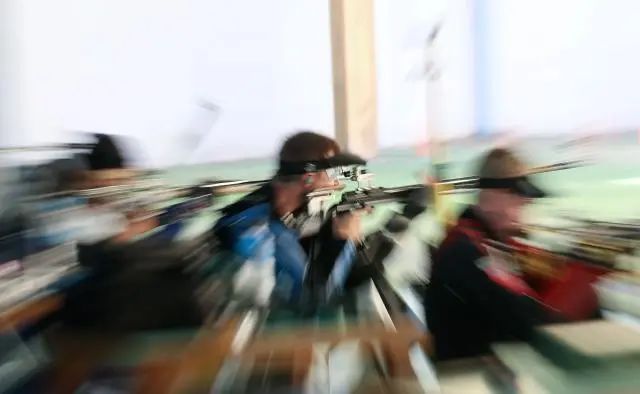
On August 14, 2016, Emmons ranked 19th in the men's 50-meter rifle three-position shooting preliminaries at the Rio Olympics and missed the finals; Photo by Xinhua News Agency reporter Cao Can
As early as the 1970s, management psychologists were aware of the difference between "Can do" and "Will do" in employee performance - "Can do" is a matter of ability, and "Will do" is an issue of attitude. This comes up with the formula:
Performance = ability x motivation.
That is, employees' work performance is related to their actual abilities and work attitudes (motivations). And this formula still holds true in the sports scene. Competitive sports is not only a competition of ability, but also a competition of mentality, especially among high-level athletes.
American psychologist Korari also pointed out that 80% of junior athletes' victory in competition depends on physiological factors and 20% on psychological factors. On the contrary, for senior athletes, when the athletes' training level, physical fitness and other physiological conditions are very close, psychological factors become the key to victory.
Those who can participate in the Olympics must be the best in different sports fields from each country, and their abilities are mostly in the middle of the pack (leaving aside those who are leading by a cliff like Bolt). The real competition in the arena may be attitude, motivation, and emotional stability. Sexuality, such as how to deal with anxiety, worry, anger, despair, etc.
Orlick's (2002) research on Canadian Olympians showed that the differences in technical and physical factors among athletes in the Olympic finals did not reach a significant level. However, there were significant differences in mental states. These differences will have an impact on the athletes competing in the competition. have an important impact.
The number of balls in each round of a table tennis match is different, and the score changes are very complicated. For example, there may be a big lead, a big fall behind, consecutive points, consecutive losses, a big lead and a big lead, and a big fall. Scores and other situations pose more severe mental challenges to athletes.
Summarize
As the highest honor in competitive sports, gold medals have extremely symbolic and motivating effects for athletes, but for competitive sports, uncertainty is an important part of its charm.
It is this uncertainty of game results, game process, athlete status, and even referee decisions, weather, venue and spectator status that not only increases the viewing and attraction of the game, but also promotes the overall development of athletes and the improvement of their competitive level. improve.
We wish Wang Chuqin can quickly adjust his condition and participate in the next game. I also wish every athlete facing the dilemma of "being noticed" to adjust their status and perform at their best.
references
[1] Vysochina, Nadiia & Vorobiova, Anastasiia. (2019). Basic Psychological Factors Affecting Athletes' Training. Polish Journal of Sport and Tourism. 26. 21-26. 10.2478/pjst-2019-0010.
[2] Bali, Ashwani. Psychological Factors Affecting Sports Performance. International journal of physical education, sports and health 1 (2015): 92-95.
[3] Jerry Orlick. Excelling in the Olympic context. Journal of Excellence, 2002(6):5-14.
[4] In-game analysis of my country’s top table tennis players based on scores. Shi Zhihui, October 20, 2015
(The author of this article: Zhang Xin, associate professor, School of Psychology and Cognitive Science, Peking University)